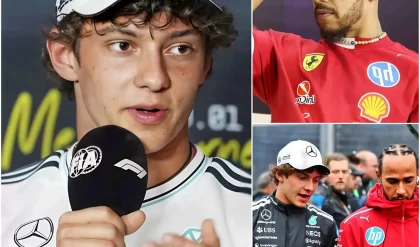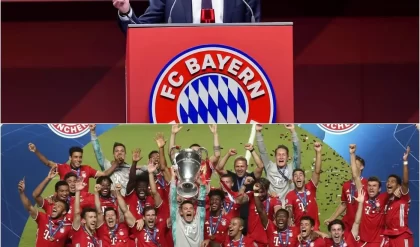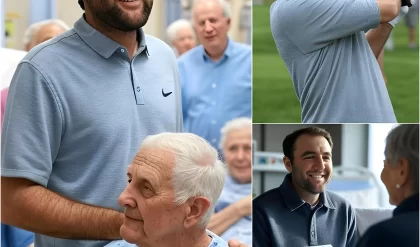NASCAR’s Elton Sawyer Addresses Austin Hill’s Suspension: A Necessary Move for the Sport’s Integrity
In the high-octane world of NASCAR, where speed and strategy collide, the line between aggressive racing and reckless behavior is often razor-thin. The recent suspension of Austin Hill, a rising star in the NASCAR Xfinity Series, has sparked heated debates among fans, drivers, and insiders alike. Following a controversial incident at the Indianapolis Motor Speedway during the Pennzoil 250, NASCAR’s Senior Vice President of Competition, Elton Sawyer, stepped into the spotlight to explain the decision to suspend Hill for one race and strip him of his 21 playoff points. His words, delivered with measured authority, underscore a pivotal moment for the sport’s integrity and its commitment to fair play.
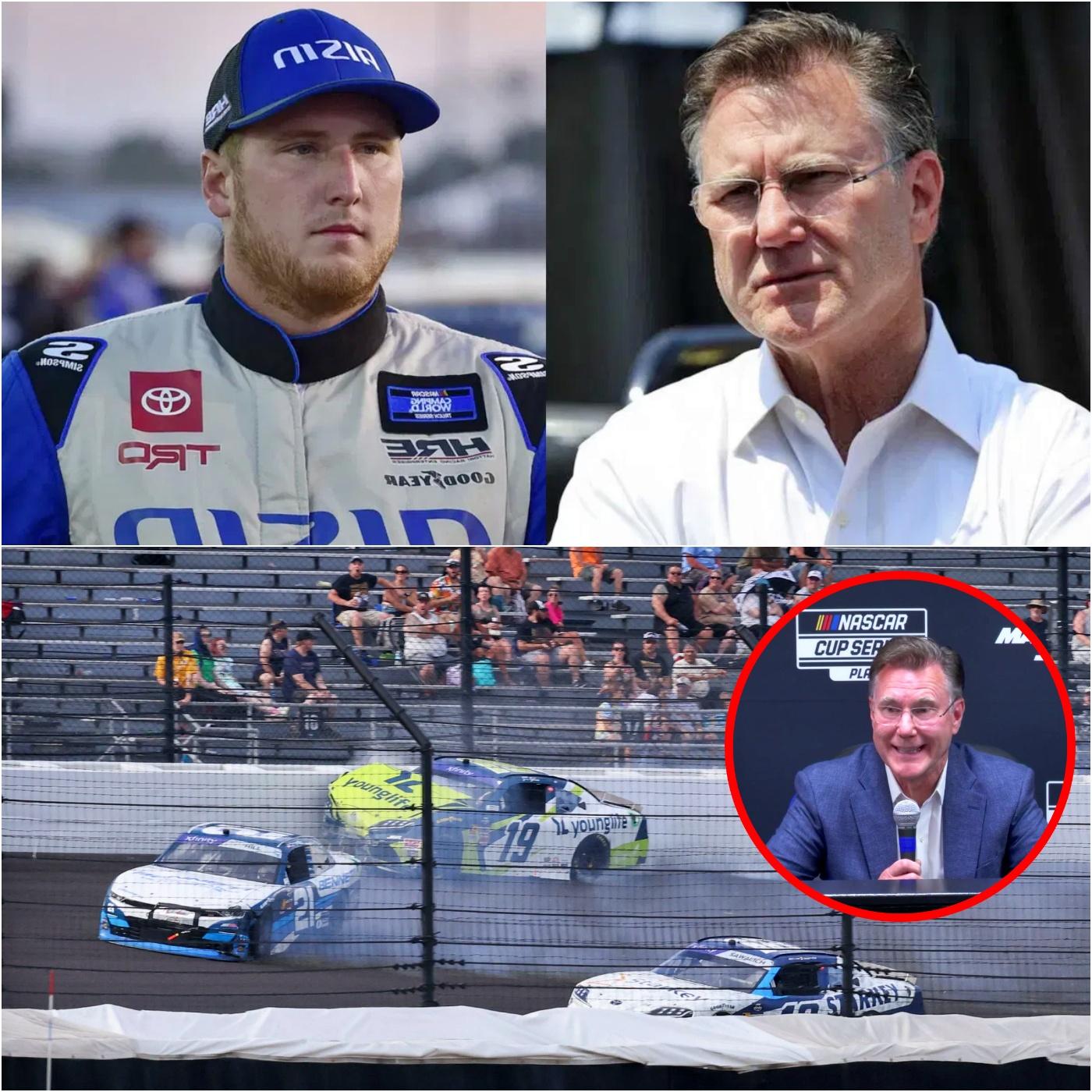
The incident that set this firestorm in motion occurred with just 10 laps remaining in the Xfinity Series race at Indianapolis. Austin Hill, driving the No. 21 Chevrolet for Richard Childress Racing, was battling for a top-five position when he made contact with Aric Almirola’s car. Almirola’s aggressive move got Hill loose, prompting a retaliatory response that saw Hill execute a dangerous right-rear hook, sending Almirola crashing into the wall. The impact was severe, with Almirola later describing it as “one of the hardest hits I’ve taken in my NASCAR career,” likening it to a previous crash that resulted in a broken back. The NASCAR community was quick to react, with fans flooding social media with outrage, labeling Hill’s move as intentional and reckless.
Initially, NASCAR officials parked Hill for five laps during the race, a penalty that Hill met with a fiery outburst over the radio, exclaiming, “They can go f— themselves. F— NASCAR. That’s f—ing bulls—t.” His frustration was palpable, but it did little to sway the governing body. By Tuesday, NASCAR had escalated the punishment, handing Hill a one-race suspension for the upcoming HyVee Perks 250 at Iowa Speedway and wiping out his playoff points, a decision that could jeopardize his championship aspirations. Under NASCAR’s 2025 rulebook, a suspension for behavioral infractions, as outlined in Sections 4.3.A and 4.4.B&D, results in the loss of all playoff points, resetting the driver to the baseline 2,000 points for the playoffs. For Hill, who had amassed 21 playoff points through three wins and multiple stage victories, this was a devastating blow.
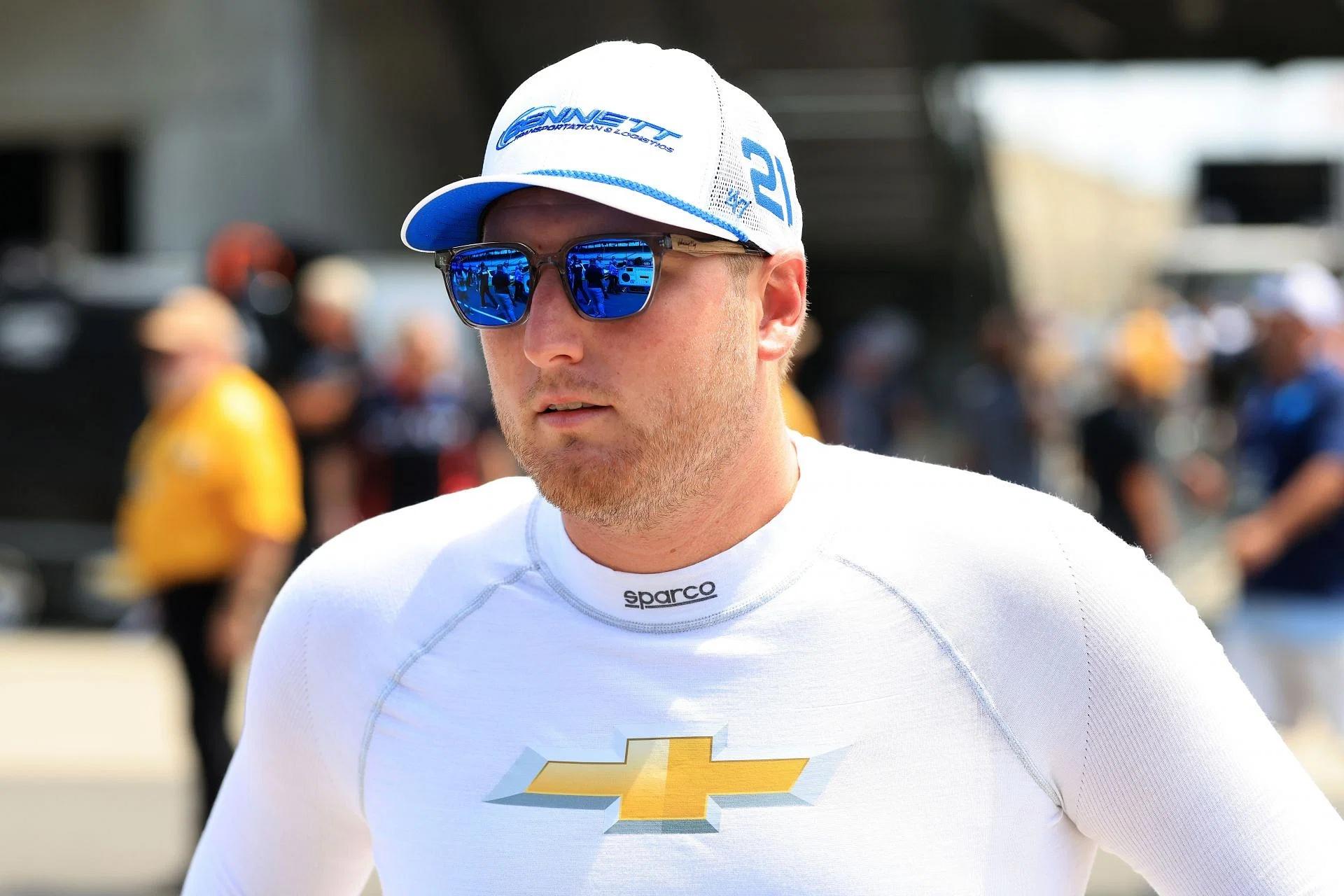
Elton Sawyer, tasked with maintaining order in NASCAR’s competitive landscape, addressed the decision on SiriusXM NASCAR Radio, emphasizing the thorough process behind the penalty. “We take these very seriously, and feel like, as stewards of the sport, it’s our job to keep law and order,” Sawyer said. He explained that the initial five-lap penalty was a swift reaction to the on-track retaliation, but a deeper review at NASCAR’s R&D Center solidified the need for harsher consequences. “Once we got back to the R&D Center, we started gathering more information, talked to Austin, talked to Aric, got their input, and continued to look at all available resources through camera angles and data we could pull,” Sawyer noted. The review drew parallels to past incidents, such as Bubba Wallace’s 2022 suspension for intentionally spinning Kyle Larson at Las Vegas and Chase Elliott’s 2023 ban for wrecking Denny Hamlin at the Coca-Cola 600. In each case, NASCAR prioritized the sport’s integrity over individual consequences.
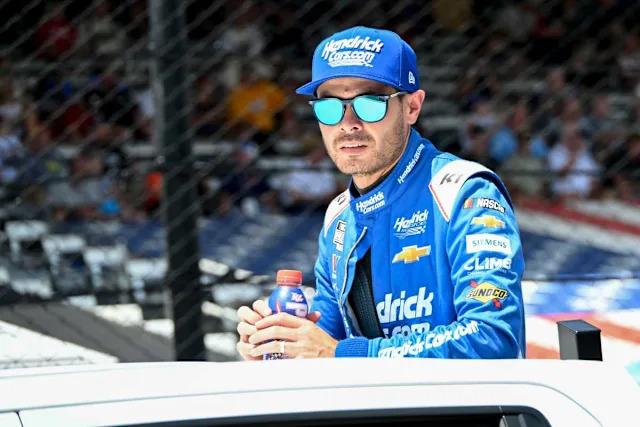
Sawyer’s reasoning was clear: the suspension was not just about punishing Hill but about sending a message to the entire NASCAR garage. “It fell into a bucket very similar to what we had dealt with a year or so ago at Las Vegas with Bubba and Kyle Larson, as well as what we dealt with at Charlotte with Chase Elliott and Denny Hamlin,” he said. “It was the right thing to do for the sport, for the garage area, and for the integrity of our sport.” This stance reflects NASCAR’s broader mission to balance the raw intensity of stock car racing with the need for safety and fairness, a delicate dance that has defined the sport for decades.
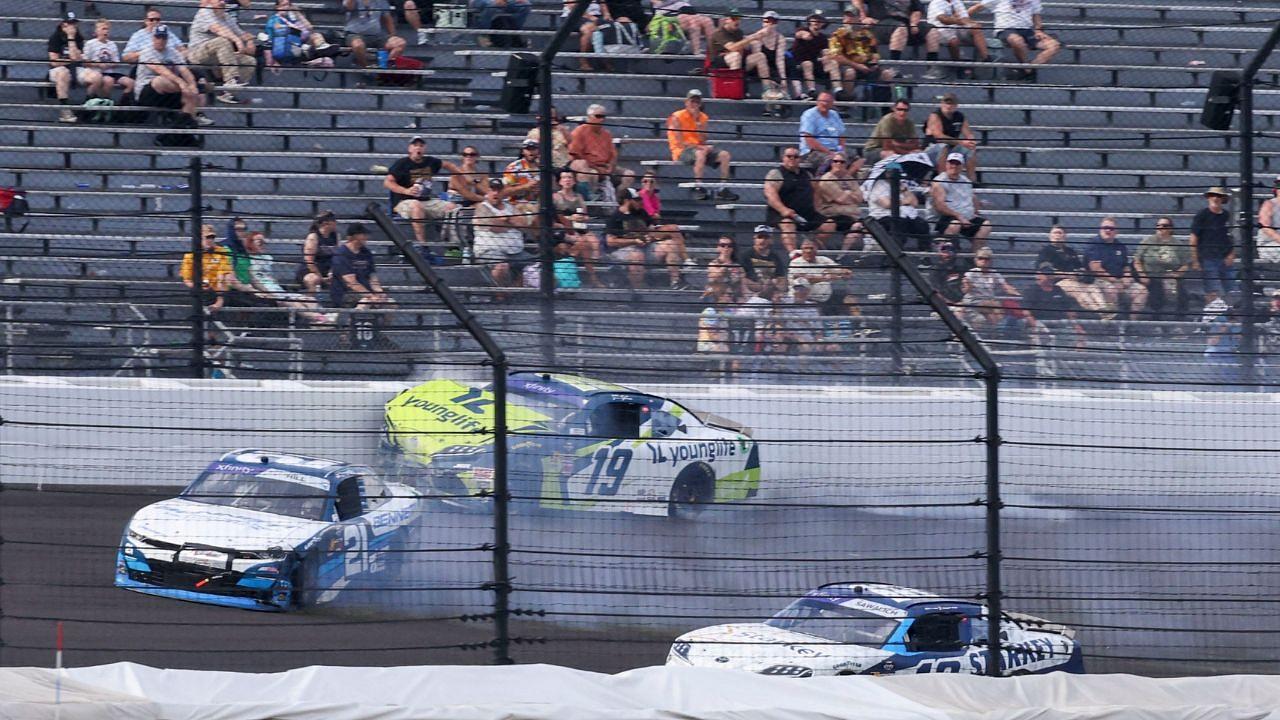
The fallout from Hill’s actions extended beyond the track. Aric Almirola, a veteran driver with Joe Gibbs Racing, didn’t mince words when addressing the incident. “Oh, it was definitely intentional,” Almirola said. “He blocked me three times. He had damage on his nose, so he was really slow in the corners.” Almirola’s frustration was compounded by Hill’s earlier pledge at a Martinsville drivers’ meeting to be a role model for young racers, a commitment Almirola called “laughable” in light of the crash. The incident not only cost Almirola a shot at victory—finishing 35th, one spot behind Hill—but also reignited discussions about racing etiquette and the example set for the next generation of drivers.
Richard Childress Racing, Hill’s team, initially pushed back against the penalty. Team owner Richard Childress argued that the original five-lap penalty was sufficient, citing inconsistencies in NASCAR’s enforcement. “They didn’t do a damn thing to the 2 car [Austin Cindric] when he wrecked Ty [Dillon] and admitted to it,” Childress said, referencing a prior incident at the Circuit of The Americas. However, by Tuesday, the team announced it would not appeal the suspension, stating, “We remain focused on winning a championship with Austin Hill in 2025. Austin Dillon will race the No. 21 Chevrolet at Iowa Speedway.” The decision to move forward without protest suggests a pragmatic approach, prioritizing Hill’s long-term prospects over a prolonged battle with NASCAR.
The fan reaction has been a mixed bag, with social media platforms like X buzzing with opinions. Some praised NASCAR for taking a firm stand, arguing that Hill’s actions crossed a line that endangered competitors. Others, particularly supporters of Hill and Richard Childress Racing, felt the penalty was overly harsh, pointing to the sport’s contact-heavy nature. One fan wrote on X, “NASCAR’s finally cracking down, but is this too much for Hill? Racing’s supposed to be rough.” Another countered, “Intentional wrecks like that have no place in the sport. Good on NASCAR for stepping up.” These divided sentiments highlight the challenge NASCAR faces in policing a sport where aggression is both celebrated and scrutinized.
For Hill, the suspension is a significant setback. His three wins in the 2025 season had positioned him as a championship contender, with playoff points providing a crucial buffer in the high-stakes knockout rounds. Losing those points places him on equal footing with lower-seeded drivers, making every race in the playoffs a must-win scenario. Yet, the broader implications of NASCAR’s decision resonate beyond Hill’s individual campaign. By drawing a clear line against retaliatory actions, NASCAR is reinforcing its commitment to safety and sportsmanship, even at the cost of controversy.
As the Xfinity Series heads to Iowa Speedway without Hill, the focus shifts to how this penalty will shape his season and the sport’s future. Sawyer’s comments suggest that NASCAR is prepared to enforce similar measures moving forward, ensuring that drivers think twice before crossing the line. For fans, the incident is a reminder of the passion and unpredictability that make NASCAR a spectacle, but also of the governing body’s responsibility to keep that passion in check. As the 2025 season unfolds, the question lingers: will this moment serve as a turning point for Hill and the sport, or will it fade into the rearview mirror as just another chapter in NASCAR’s storied history?
